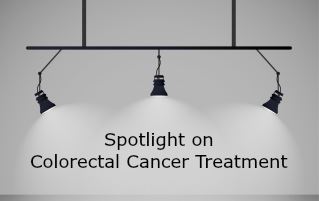Spotlight on: Pancreatic Cancer Treatment

A round-up of some of the latest breakthrough advances in drug development and technology, which promise to improve the outlook for people with the condition.
In September last year researchers from St. George’s University of London announced that, in a clinical trial, a novel immunotherapy drug called IMM-101 had shown “dramatic results in treating advanced pancreatic cancer.”
Metastatic patients who received IMM-101 injections plus standard chemotherapy with gemcitabine had a median overall survival of 7.0 months, compared with 4.4 months for those who had gemcitabine alone.
That is an increase of 59 per cent, for a cancer that has one of the lowest survival rates.
Only about two out of ten people diagnosed with the disease survive at least one year, according to the latest available figures. And there has been no improvement in the last four decades.
Presently, patients with pancreatic cancer may be offered surgery, chemotherapy or radiotherapy, depending on tumour type and stage. But, for many of those with advanced disease, chemotherapy is the only option.
According to Professor Angus Dalgleish, who led the study, published in the British Journal of Cancer, “IMM-101 could revolutionise the way the cancer is treated globally.”
Monoclonal Antibody Therapy for Pancreatic Cancer
Another novel immunotherapy agent with potential to improve outcomes in pancreatic cancer is the monoclonal antibody demcizumab, which studies have shown can selectively target stem cancer cells, stopping their growth.
The drug can also halt the development of the blood vessels that allow the tumour to spread.
The efficacy and safety of the new agent is now being investigated in a phase II clinical trial (YOSEMITE) comparing demcizumab plus gemcitabine with gemcitabine alone, in patients with advanced pancreatic cancer.
An additional clinical trial, of demcizumab administered in combination with another antibody (pembrolizumab) in solid tumours including pancreatic cancer, is currently enrolling suitable patients at 10 centres in the US and Europe.
The recruitment process will end in January 2018.
Combination Therapy with PEGPH20 for Pancreatic Cancer
There are promising trial data also for another experimental drug, called PEGPH20.
They have been presented by Dr. Sunil Hingorani, of the Fred Hutchinson Cancer Research Center, Seattle, Washington, at the annual meeting of the American Society of Oncology (ASCO), held in Chicago, Illinois.
Dr. Hingorani explained that, in previously untreated patients with advanced pancreatic cancer, adding PEGPH20 to chemotherapy with nab-paclitaxel and gemcitabine increased median progression free survival (the period of time, after treatment, in which the cancer does not get worse) to 9.2 months, compared with 4.3 months for patients who received nab-paclitaxel and gemcitabine alone.
Overall survival in the latter group was 9 months, compared with 12 months for patients who had PEGPH20 plus gemcitabine and nab-paclitaxel.
PEGPH20 is an enzyme (a protein), which works by temporarily improving blood flow to the tumour. This allows greater amounts of the anticancer drugs used in chemotherapy to reach and kill tumoural cells, enhancing treatment effectiveness.
A global phase III trial (HALO Pancreatic 301) of PEGPH20 in pancreatic cancer with high levels of a sugar called hyaluronic acid (HA) is currently enrolling patients at various sites worldwide.
Oxygen Microbubble Technology
Scientists from the University of Bergen, Norway, are too investigating ways to make chemotherapy more effective.
But instead of using a drug, they are exploiting an innovative method, called microbubble technology, which increases the levels of oxygen in the tumour.
An adequate oxygen supply is crucial for anticancer treatments such as chemo and radiotherapy to work. But oxygen levels are generally low in pancreatic cancer.
So, in a recent study, the researchers treated ten patients with a combination of oxygen microbubbles, ultrasound, and standard chemotherapy with gemcitabine.
The team report in the Journal of Controlled Release that the patients “tolerated an increased number of gemcitabine cycles,” compared with historical controls (similar patients who had previously been treated at the same hospital with gemcitabine alone).
What’s more, they add, “in five patients, the maximum tumour diameter… decreased from the first to last treatment.” And the median survival of those who received combination treatment increased to 17.6 months, compared with 8.9 months for historical controls.
Microbubble technology is also being studied in combination with current radiotherapy methods, by UK researchers at the Universities of Ulster and Oxford.
“[Radiotherapy] is a very effective way of controlling symptoms but it is limited by poor oxygen supply,” says Professor John Callan, of Ulster University, Ireland. “By examining our microbubble technology in combination with radiotherapy, we hope to improve its effect on pancreatic cancer.”
Moving forward
Richard Kensett, managing director at Alivia Swiss Health, is positive about a better future for pancreatic cancer treatment.
He says: “The research into more effective ways to control the disease is moving forward at an unprecedented pace. New therapies will take time to become available outside clinical trials. But the results to date appear to suggest that 40 years of no progress in patient survival could be about to end.”
Alivia Cancer Second Opinion Service
Through our innovative second opinion service, we can help you get access to the most exciting new cancer treatments and find the most decorated and highly specialised cancer surgeons and oncologists in the world to review your illness.
Creatives designed by freepic.com




